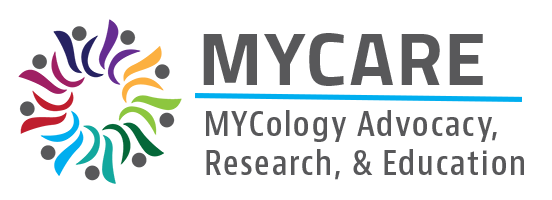Learn strategies to live your best life possible while living with or recovering from a non-Aspergillus mold infection.

NON-ASPERGILLUS MOLD INFECTIONS
LIVING WITH A NON-ASPERGILLUS MOLD INFECTION

If you or your loved one has a non-Aspergillus mold infection, there are things you should know:
- Early treatment makes a difference! Initiating therapy early leads to better outcomes.
- Pharmacology is important. Your healthcare team will work to get drug that gets to the site of the infection.
- Your immune system is important for recovery.
- Get support! Some people find talking with other patients helpful. MyCARE has a number of patients who have lived with rare molds; contact us to get connected.
- If you are a caregiver, get some support for yourself. Keep up with your own health and try to build in time to recharge.
- Get involved. Your experience with a non-Aspergillus mold infection has impacted your life. That experience could help others. Would you like to help us advocate for improved non-Aspergillus mold care? Click here to connect with us and explore opportunities for you to make a difference!
DEALING WITH THE FINANCIAL IMPLICATIONS

Before you or your loved one starts a therapy, you should ask your doctor to contact your health insurance company to find out whether these medications are covered by your insurance and if you will be responsible for paying any part of the bill. You can also look into your coverage on your own by contacting your insurance company. Consider the following:
- Is the use of the drug off-label? If this is the case, your provider should assist with making the case to the insurance company as to why this therapy was appropriate to you. Your provider may need to correspond with the insurance company and provide data supporting the use of the drug. Or, they may have to appeal any rejection for the off-label use.
- If you have commercial insurance. With commercial insurance, you may receive co-pay assistance from the drug manufacturer. Financial assistance information for branded antifungals is shown under each drug’s name.
- If you have insurance from a federal/state program (such as Medicare, Medicaid, or Tricare). If you have insurance through a federal/state insurance program, you can’t receive financial assistance from the drug manufacturer, but you may be eligible for co-pay assistance from an independent charitable foundation.
- If you are not insured. If you are not insured, you may be eligible for free medications through drug manufacturers, charitable organizations, or designated hospitals, depending on your income. To find additional financial assistance, see hrsa.gov
- Which type of therapy you are receiving (oral vs IV). For insurance purposes, oral drugs may be treated differently than IV drugs. If you are on Medicare, oral drugs will, most likely, be covered under Medicare Part D, which is the prescription drug benefit. IV drugs will be covered under Medicare Part B. Note that there may be an out-of-pocket cost difference because of this differentiation.
- Whether you will be able to work. Treatments can affect your ability to work. Here are some questions to ask yourself: Are you able to miss work during treatment, either to receive infusions or because of the side effects of therapy? Does your work require you to travel? If you work full time, can you arrange a flexible schedule to meet your treatment requirements? It’s important to consider these factors and find out your legal protections under the Family and Medical Leave Act (FMLA). The Patient Advocate Foundation (800.532.5274) can assist in this process.
- Caregivers should know their resources. Check out this US government page that provides resources for caregivers, including information about paid family leave and paid caregiving programs.

